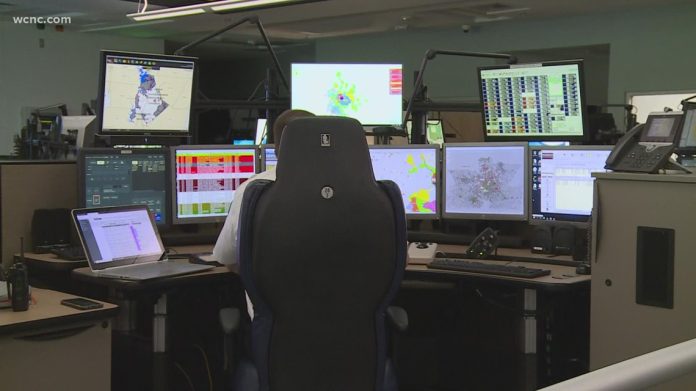Staffing shortages can challenge any job at any point in time. Many companies have reduced staff due to budget reductions and in some cases due to jurisdiction realignments. It is a difficult situation when an already reduced staff is asked to give even more through mandated overtime or extended shifts. For the workers in this environment it can feel like being placed in a vice grip with the tension fully pressed down. While this can seriously stress anyone in the workforce, this is a critical and dangerous situation to those working in an emergency communications center.
In the high pressure and stressful world of the emergency communications dispatch center, staffing shortfalls can often lead to career burnout and as a domino effect promote high turnovers. So what can you do when mandated overtime looms because of skeleton staffing and you already feel the tension in your neck and back because of the exhaustive overtime hours to come?
Here are four steps you can implement to keep yourself from stressing out or burning out;
1. When a workplace situation has a measure of control over our lives, it correlates to the level of stress we feel internally because we are no longer masters over our situation. Soon it seems like a tornado of difficulty has taken over because you’ve lost control over your schedule, over your ability to negotiate time for leisure activities, necessary appointments and family time. This can also lend itself to insomnia and excessive anxiety – both of which can start you down a negative pathway in an attempt to compensate. One of the first steps to regaining your control and satisfaction is to admit, at least to yourself, that this situation is greater than you at this moment. Then try to find positive ways to cope and deal with the staffing shortfall. Perhaps working with management to find a way to vary/stagger shifts or trade with other co-workers to regain life-balance.
2. Remain wellness focused. During times of high stress your body may begin to crave sweets, high salt content foods like chips and caffeinated beverages, as coping mechanisms to deal with the overwhelming regimen you are pushing your body through to take on extra shifts or longer shifts. This is a particularly important time to remind yourself that YOU are the most important asset to yourself, your family and your employer. Take a pause and meal plan or find a good reduced calorie eating plan that can help you to have meals on the go that also keep you healthy. Take purposeful pauses to reflect and channel positive energy flow by deep breathing in five seconds repeating words of strength such as “I am worth this moment of relaxation” and out for five seconds with words to reduce tension such as “This situation is not my situation forever.” When we acknowledge the stress in a given moment we see that it is not a permanent state of being. Try to get enough rest – at a minimum six hours of solid sleep, particularly if you are a night or alternative shift worker, to regain a positive circadian rhythm.
3. Join a positive group of other Fire/EMS/Dispatch workers that can share support through social interaction and helpful ideas to get past the stress of workplace staffing shortages. On most social media channels such as Facebook, Twitter and Google plus you can type the words Fire/EMS or Dispatch /911 Dispatch and find a whole host of groups offering like-minded individuals to share highs and woes with. Several of these groups are closed groups so that you are able to truly share your ideas or thoughts without the worry of the prying eyes of management/QI department. Knowing you have support and mentors during times of critical stress is an integral key to keeping yourself from developing depression and even chronic fatigue.
4. Exercise. I realize this seems an impossible task when you’ve just been mandated hours of overtime because of a staffing shortage. This is a time when your body needs exercise the most to help you healthily rid stress that can build inside your body in the form of tension, a clear indicator that negative hormones are building up. Most communications centers do not have workplace stations that are attached to treadmills or other exercise devices. However, can you stand up and stretch? How about doing a few jumping jacks or leg lifts between calls? These movements promote natural releases to stress, increasing your heart rate to help you focus better and can help lead you to increased sleep. Plus, as a bonus, it gets you ready to live a healthy exercise routine each and every day outside of the work environment. — Be sure to click on the links to see movements easily performed from a seated position.








